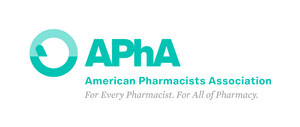WASHINGTON, Feb. 27, 2020 /PRNewswire/ -- The American Pharmacists Association (APhA) submitted comments to the Federal Trade Commission (FTC) and the U.S. Department of Justice (DOJ) Antitrust Division addressing the impact vertical mergers are having on the pharmacy supply chain, medication pricing and patient access and choice. Vertical mergers, which combine two or more companies that operate at different levels in the same supply chain, have created a highly concentrated marketplace where only a few large Pharmacy Benefit Managers (PBM) control about three-quarters of all prescription claims, and integrated health care systems restrict access.
In the comments, APhA recommends that, as part of the evaluation of healthcare vertical mergers, there be:
- Increased scrutiny of anti-competitive healthcare vertical mergers
- Development of a DOJ/ FTC task force to monitor healthcare vertical mergers and acquisitions activity
- Greater consideration and documentation that the healthcare vertical merger is in the public interest
PBMs were designed to lower drug prices, but evidence shows that consolidation of PBMs have led to a sharp rise in patient's drug prices at the pharmacy counter through direct and indirect remuneration (DIR) fees and other "clawback" mechanisms, delaying prescribed treatments through patient steering and prior authorization, and limiting options for patients by controlling access to insurance networks.
In 2019, APhA's House of Delegates proactively enacted policy on the "Consolidation within Health Care," to clarify the position of pharmacists on mergers and consolidation within the health care marketplace. The policy states, among other things, that the scope of review by federal agencies must have a focus on the impact of health care mergers and acquisitions on patient access and the provision of care to ensure optimal patient outcomes.
"Patient care is impacted due to PBMs disproportionate market power," said APhA Senior Vice President, Pharmacy Practice and Government Affairs Ilisa Bernstein, PharmD, JD, FAPhA. "Community pharmacies routinely must agree to 'take it or leave it contracts' from the PBMs just to continue to serve their longstanding patients, limiting pharmacy access and choice. Curbing these practices is what antitrust protections are for, and we want the FTC and the DOJ to step up and provide greater scrutiny over vertical mergers in the health care arena."
APhA also jointly submitted comments with four other national pharmacy organizations (Alliance for Pharmacy Compounding, American Society of Consultant Pharmacists, National Alliance of State Pharmacy Associations, and National Community Pharmacists Association) recommending:
- The agencies closely evaluate vertical consolidation in healthcare, as it has yielded significant anticompetitive effects without promised improvements in cost or quality.
- A reinvigorated and reimagined antitrust enforcement policy rather than a continuation of the status quo.
- The agencies account for anticompetitive harm to healthcare access, quality, and service in vertical merger enforcement policy as it relates to the healthcare sector.
- The agencies rigorously scrutinize claimed efficiencies from vertical mergers, including whether any efficiencies will be passed on to consumers.
About the American Pharmacists Association
The American Pharmacists Association, founded in 1852 as the American Pharmaceutical Association, is a 501 (c)(6) organization, representing 60,000 practicing pharmacists, pharmaceutical scientists, student pharmacists, pharmacy technicians and others interested in advancing the profession. APhA is dedicated to helping all pharmacists improve medication use and advance patient care and is the first and largest association of pharmacists in the United States. For more information, please visit www.pharmacist.com.
SOURCE American Pharmacists Association

Related Links
WANT YOUR COMPANY'S NEWS FEATURED ON PRNEWSWIRE.COM?
Newsrooms &
Influencers
Digital Media
Outlets
Journalists
Opted In






Share this article